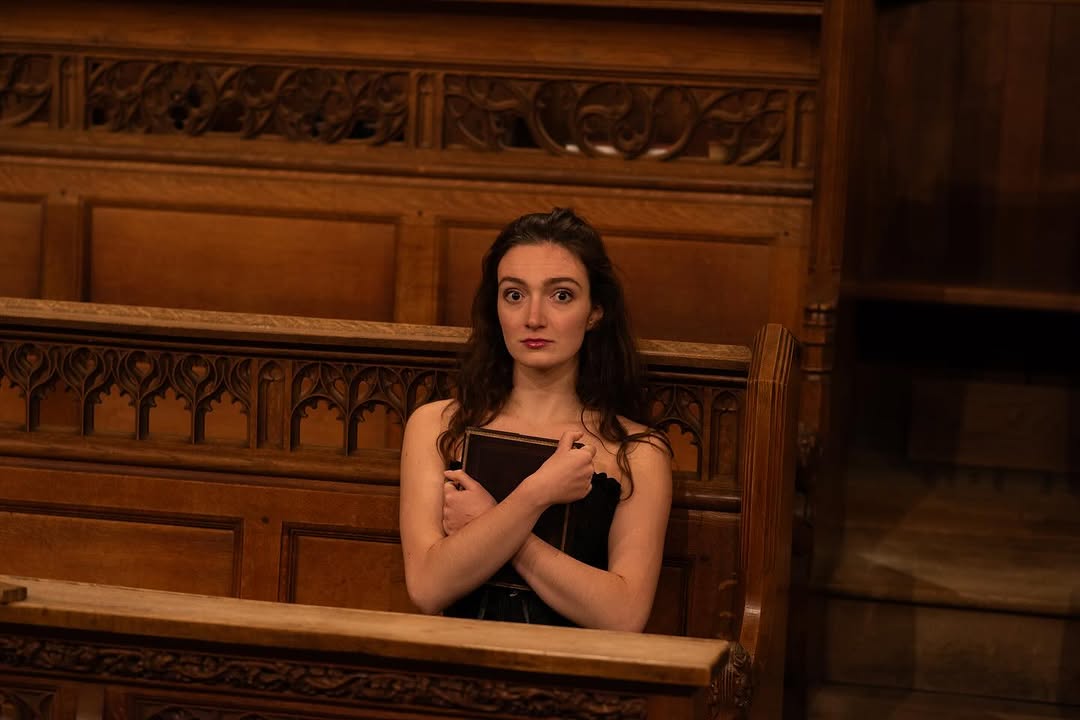Have you ever been called a whore? It’s one of the first questions Emily Knutsson asks in this unusual, historically-inspired, one-woman show. Embarking on a post-graduate degree in mediaeval history, she arrives at the University of Cambridge, where she encounters all the less-than-loveable archetypes that student life involves. She’s had a recent break-up too – one that she initiated, but might not be entirely over – and so, inspired by her studies, she decides to experiment with “monasticism”. That’s celibacy, to you and me.
As it happens, I went to Cambridge too, and she’s definitely on to something with her theme. There is an echo of the monastery in the strange institution of a college, with its chapel, library, and communal dining hall. It’s an easy target for comedy but, for Knutsson, this isn’t an archaic holdover to be lampooned; it’s a place of safety, a system that protected her, fit for the purpose it’s served for the last 800 years.
Curiously, we’re told that we’re seeing a pitch for a show, not the show itself; I’m not sure the framing adds all that much, and certainly no excuse is needed for a comic talk with slides. Knutsson’s angle is to dip into the 1,500-year-old Rule Of St Benet, and translate its decrees on monastic life to the language of the modern day. There’s wisdom to be found in this, and humour too, and the illustrations on the slides often reveal that mediaeval imaginations could be just as lewd as our own. And the people she meets – most of them young, and therefore horny – get faux-academic labels as well, drawn from a pantheon of Christian teaching and classical myth.
I’m treading gently here, as there are a couple of hints of deeper trauma, but most of the experiences she recounts sound fairly typical of student life. There’s a boyfriend who’s a little bit “ugh”, an older man of ambiguous intent, a few mistakes made and a lot of lessons learned. Most people don’t respond to this by committing to a year of celibacy. Understanding why Knutsson chose that path feels the key to decoding this piece – and beyond her challenging opening question and a brief reference to the Madonna, I didn’t gain many insights.
And when something happens that is clearly wrong, it’s skipped over pretty quickly, in an epilogue which feels like it might be the true substance of the tale. This is Knutsson’s debut show – and as she finds her niche and voice, I hope she’ll focus on the ideas which are truly distinctive and new. Jokes about Land Economy students were old even when I was at Cambridge, but the picture of studenthood as a cloistered life is genuinely intriguing – an insight that absolutely deserves to be further explored.


Comments